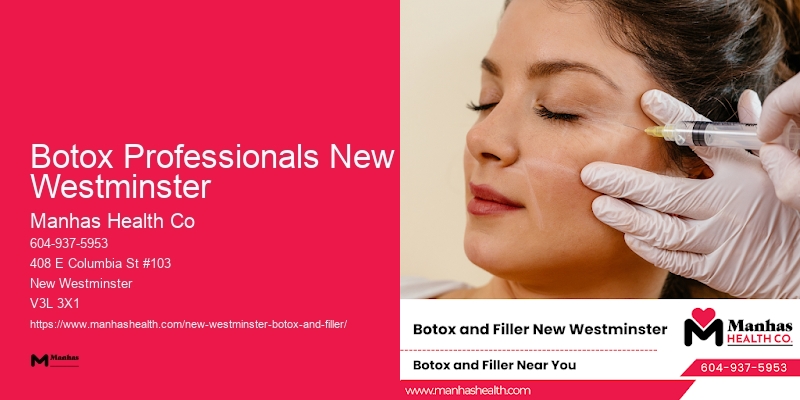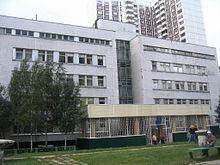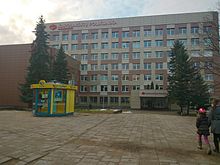

Recognizing the delicate nature of the eye area, we've adopted techniques that minimize discomfort while maximizing results. Just select the service you're interested in, choose a date and time that fits your schedule, and you're all set. Whether you're looking to smooth out fine lines, reduce wrinkles, or simply seeking a fresher, more youthful appearance, our team of experts is here to guide you every step of the way. Learn more about Botox Professionals New Westminster here From the moment you step into our clinic, we're dedicated to making you feel completely at ease. Cosmetic Botox, a popular non-surgical procedure, temporarily relaxes facial muscles to reduce the appearance of wrinkles and fine lines.
I'm getting compliments about my glow, and honestly, it feels amazing.'These testimonials highlight the transformative power of our Cosmetic Botox services.
Our Botox procedures typically take only about 15 to 30 minutes from start to finish. You'll start noticing the results of your Botox treatment within a few days, with the full effects typically visible after about two weeks. Botox injectors New Westminster Don't rub or massage the treated areas for at least 24 hours; this can cause the Botox to spread to unintended muscles. However, like any medical procedure, it carries some risks and potential side effects.
They're not just seeing changes in the mirror; they're experiencing a transformation in how they present themselves to the world. Plus, we use fine needles and offer numbing options to ensure your comfort throughout the process. Opting for Botox is a personal decision, one that comes with its fair share of questions and considerations.
We're committed to providing a seamless experience that fits into the busy lifestyles of our clients, ensuring they can enjoy the benefits of Botox without it being a burden on their time. Then, we'll walk you through how Botox can address your concerns, what you can expect during and after the treatment, and any potential side effects. Hearing how our services have positively impacted their lives truly inspires us.
Once you've booked your appointment, we'll send you a confirmation email with all the details you'll need, including any prep instructions for your Botox treatment. Join us as we uncover the magic behind Botox and discover why so many are turning to this revolutionary treatment to help them look and feel their best. Let's get you set on your journey to looking and feeling your best!
New Westminster (colloquially known as New West) is a city in the Lower Mainland region of British Columbia, Canada, and a member municipality of the Metro Vancouver Regional District. It was founded by Major-General Richard Moody as the capital of the Colony of British Columbia in 1858 and continued in that role until the Mainland and Island colonies were merged in 1866. It was the British Columbia Mainland's largest city from that year until it was passed in population by Vancouver during the first decade of the 20th century.
One of the most appealing aspects of undergoing Botox at Manhas Health Co. is the minimal downtime required, allowing clients to quickly resume their daily activities.


It's relatively painless, with most clients describing it as a slight pinch. Our team consists of highly trained professionals who not only have a deep understanding of facial aesthetics but also stay updated with the latest techniques and products. At Manhas Health Co., we're committed to enhancing your beauty with the utmost care and professionalism.
Initially, we'll have a consultation to discuss your concerns and desired outcomes. We understand that your time is valuable, so we've streamlined our booking process to minimize wait times and get you in for your treatment as quickly as possible.


This holistic view allows us to recommend the most effective, safe, and suitable Botox treatments. That's where our expertise at Manhas Health Co. comes into play, providing our clients with not just beauty, but confidence in the science behind their choices. At Manhas Health Co., it's all about celebrating your individuality while helping you look and feel your best. We're excited to unveil three new Cosmetic Botox services, designed to cater to our clients' diverse needs with precision and care. At Manhas Health Co., we're dedicated to helping you look and feel your best, using Botox to target these critical areas with precision and care.
Let's be your partners in embracing a more confident, radiant you. It's a reminder that the magic of Botox isn't just in the visible results but in the renewed confidence it instills. This initial meeting ensures we understand your aesthetic goals and can provide the best advice on achieving them. It's crucial not to rub or massage the treated areas for at least 24 hours; this prevents the Botox from spreading to unintended muscles.
At Manhas Health Co., we're here to support you every step of the way. It's not just about looking younger; it's about feeling more vibrant and self-assured. Most importantly, we've seen how these changes can uplift someone's spirit.
We've seen firsthand the joy that comes from our clients seeing their refreshed appearances for the first time. Botox specials New Westminster Each photo tells a story of renewed confidence and satisfaction, reflecting the high-quality care and personalized approach we're known for at Manhas Health Co. During your consultation, we'll dive into your aesthetic goals, discuss any concerns, and provide a comprehensive overview of what to expect. Trust us to enhance your natural beauty with Botox strategies designed just for you. We'll also include a reminder closer to the date, so you won't forget.
The cost of cosmetic Botox varies, depending on the areas treated and the amount of Botox used. Lastly, come to your session with a clean face-no makeup, please. Botox consultation checklist Our approach is holistic; we don't just look at the area you want to enhance, we consider your overall well-being. This commitment to quality means you'll see better, longer-lasting results.
Your safety and satisfaction are our top priorities. Our dedication to offering personalized care is unmatched. We then craft a personalized treatment plan, ensuring the results align with their desires. Alcohol can increase bruising, so staying clear of it helps minimize any potential side effects.
It's about enhancing quality of life in various ways. One client mentioned, “After my first session at Manhas Health Co., I noticed a significant reduction in my forehead lines. Trust us to be your partners in beauty, offering expert advice and unparalleled care throughout your journey. At Manhas Health Co., we're not just about achieving stunning results; we're about doing it safely.


A clinic (or outpatient clinic or ambulatory care clinic) is a health facility that is primarily focused on the care of outpatients. Clinics can be privately operated or publicly managed and funded. They typically cover the primary care needs of populations in local communities, in contrast to larger hospitals which offer more specialized treatments and admit inpatients for overnight stays.
Most commonly, the English word clinic refers to a general practice, run by one or more general practitioners offering small therapeutic treatments, but it can also mean a specialist clinic. Some clinics retain the name "clinic" even while growing into institutions as large as major hospitals or becoming associated with a hospital or medical school.

The word clinic derives from Ancient Greek κλίνειν klinein meaning to slope, lean or recline. Hence κλίνη klinē is a couch or bed and κλινικός klinikos is a physician who visits his patients in their beds.[1] In Latin, this became clīnicus.[2][3]
An early use of the word clinic was "one who receives baptism on a sick bed".[4]

Clinics are often associated with a general medical practice run by one or several general practitioners. Other types of clinics are run by the type of specialist associated with that type: physical therapy clinics by physiotherapists and psychology clinics by clinical psychologists, and so on for each health profession. (This can even hold true for certain services outside the medical field: for example, legal clinics are run by lawyers.)
Some clinics are operated in-house by employers, government organizations, or hospitals, and some clinical services are outsourced to private corporations which specialize in providing health services. In China, for example, owners of such clinics do not have formal medical education. There were 659,596 village clinics in China in 2011.[5]
Health care in India, China, Russia and Africa is provided to those regions' vast rural areas by mobile health clinics or roadside dispensaries, some of which integrate traditional medicine. In India these traditional clinics provide ayurvedic medicine and unani herbal medical practice. In each of these countries, traditional medicine tends to be a hereditary practice.

The function of clinics differs from country to country. For instance, a local general practice run by a single general practitioner provides primary health care and is usually run as a for-profit business by the owner, whereas a government-run specialist clinic may provide subsidized or specialized[dubious – discuss] health care.
Some clinics serve as a place for people with injuries or illnesses to be seen by a triage nurse or other health worker. In these clinics, the injury or illness may not be serious enough to require a visit to an emergency room (ER), but the person can be transferred to one if needed.
Treatment at these clinics is often less expensive than it would be at a casualty department. Also, unlike an ER these clinics are often not open on a 24/7/365 basis. They sometimes have access to diagnostic equipment such as X-ray machines, especially if the clinic is part of a larger facility. Doctors at such clinics can often refer patients to specialists if the need arises.[6]

Large outpatient clinics vary in size, but can be as large as hospitals.
Typical large outpatient clinics house general medical practitioners (GPs) such as doctors and nurses to provide ambulatory care and some acute care services but lack the major surgical and pre- and post-operative care facilities commonly associated with hospitals.

Besides GPs, if a clinic is a polyclinic, it can house outpatient departments of some medical specialties, such as gynecology, dermatology, ophthalmology, otolaryngology, neurology, pulmonology, cardiology, and endocrinology. In some university cities, polyclinics contain outpatient departments for the entire teaching hospital in one building.

Large outpatient clinics are a common type of healthcare facility in many countries, including France, Germany (long tradition), Switzerland, and most of the countries of Central and Eastern Europe (often using a mixed Soviet-German model), as well as in former Soviet republics such as Russia and Ukraine;[7] and in many countries across Asia and Africa.[8]
In Europe, especially in the Central and Eastern Europe, bigger outpatient health centers, commonly in cities and towns, are called policlinics (derived from the word polis, not from poly-).
Recent[when?] Russian governments have attempted to replace the policlinic model introduced during Soviet times with a more western model. However, this has failed.[9]
In the Czech Republic, many policlinics were privatized or leasehold and decentralized in the post-communist era: some of them are just lessors and coordinators of a healthcare provided by private doctor's offices in the policlinic building.[10]
India has also set up huge numbers of polyclinics for former defense personnel. The network envisages 426 polyclinics in 343 districts of the country which will benefit about 33 lakh (3.3 million) ex-servicemen residing in remote and far-flung areas.[11]
Policlinics are also the backbone of Cuba's primary care system and have been credited with a role in improving that nation's health indicators.[12]


Providing health services through mobile clinics provides accessible healthcare services to these remote areas that have yet to make their way in the politicized space. For example, mobile clinics have proved helpful in dealing with new settlement patterns in Costa Rica. Before foreign aid organizations or the state government became involved in healthcare, Costa Rica's people managed their own health maintenance and protection.[13] People relied on various socio-cultural adaptations and remedies to prevent illnesses, such as personal hygiene and settlement patterns.[13] When new settlements that sprang up along the coast became "artificial" communities, and due to lack of traditional home healing practices here, alternative methods such as mobile clinics had to be implemented in these communities for the protection and prevention of diseases.[13]
A study done in rural Namibia revealed the health changes of orphans, vulnerable children and non-vulnerable children (OVC) visiting a mobile clinic where health facilities are far from the remote villages.[14] Over 6 months, information on immunization status, diagnosis of anemia, skin and intestinal disorders, nutrition, dental disorders was collected and showed that visits to mobile clinics improved the overall health of children that visited regularly. It concluded that specified "planning of these programs in areas with similarly identified barriers may help correct the health disparities among Namibian OVC and could be a first step in improving child morbidity and mortality in difficult-to-reach rural areas."[14]

Food supplementation in the context of routine mobile clinic visits also shows to have improved the nutritional status of children, and it needs further exploration as a way to reduce childhood malnutrition in resource-scarce areas. A cross-sectional study focussed on comparing acute and chronic undernutrition rates prior to and after a food-supplementation program as an adjunct to routine health care for children of migrant workers residing in rural communities in the Dominican Republic.[15] Rates of chronic undernutrition decreased from 33% to 18% after the initiation of the food-supplementation program and shows that the community members attending the mobile clinics are not just passively receiving the information but are incorporating it and helping keep their children nourished.[15]

There are many different types of clinics providing outpatient services. Such clinics may be public (government-funded) or private medical practices.
cite book: |website= ignored (help)
Cosmetic may refer to:
We're curious about the qualifications of the professionals who administer Botox at this clinic and how they stay current with new techniques and safety measures. It's important to us that they're highly trained and knowledgeable.
We've found that in comparing cosmetic Botox to other anti-aging treatments, it often provides a more cost-effective solution with longer-lasting results, making it a superb choice for those seeking to maintain a youthful appearance.
We've wondered if cosmetic Botox treatments could affect our ability to show emotions or facial expressions. It turns out, if done correctly, it shouldn't hinder our expressions significantly but still requires careful application by professionals.